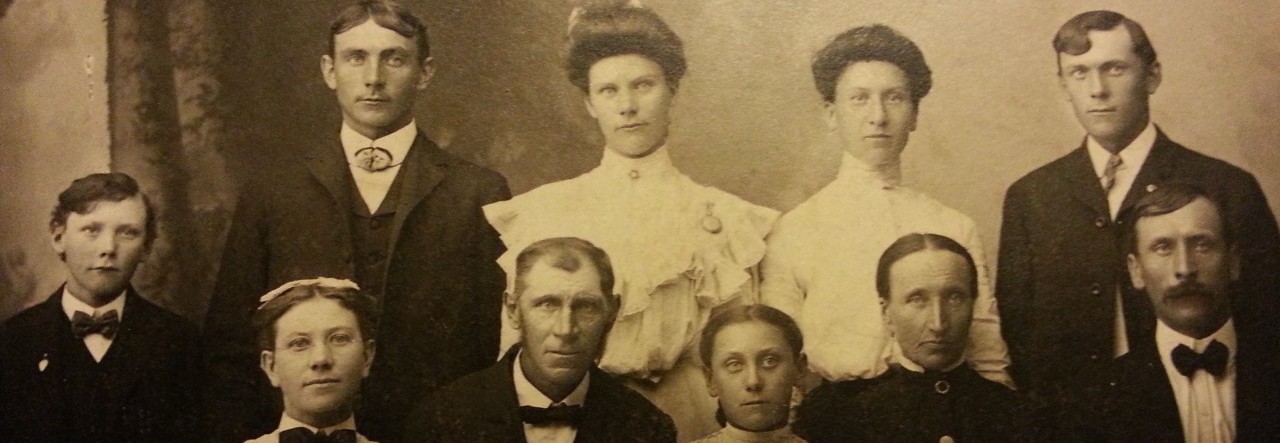I have my first genealogy presentation today! I volunteered to do this for one of my genealogy groups, Twigs. It’s a spin-off group from my local genealogy society, the South Bend Area Genealogical Society. We meet once a month and discuss whatever topics we previously decided on. Then, one of our group does the research and brings the results to the group. I have a lot of fun in the group and I’m very excited to be able to give back tonight!
With that in mind, I also want to share my results with all of my online genealogy friends! I can’t cover everything in the hour I have for the presentation (because there is a lot!) so I’m just bringing you all what I’ll be talking about tonight. Feel free to leave a comment with anything that I missed!
My topics will cover:
- Free Online Tutorials and Lessons
- Online Genealogy Courses, Classes, and Lessons (these aren’t free unless stated as so)
- Institutions and Conferences
- Professional Genealogy Reading: Journals and Books
- Genealogy Certification
So today I will start with the Free Online Tutorials and Lessons!
- Cyndi’s List: This is a well known genealogical site and I know there aren’t free online tutorials or lessons specifically ON the site, but there is information on where to find the free online tutorials and lessons. It’s one of my go-to places when looking for new information and I love how much can be found through the website.
- DearMyrtle: Besides Cydni’s List, this is probably the second genealogy related site I went to for more information. I absolutely love this website! Myrtle has been online since 1985 and has a lot of information on there for everyone including genealogy lessons and organization tips. Her YouTube channel is a wonderful resource to go to see her archived webinars as well. If you have the chance, you can also participate in her Monday’s with Myrt, which is done through Google+ and her website explains how to set that up so you’ll be prepared. Also, she has a wonderful GeneaWebinars Calendar where she has current information on upcoming webinars. She’s a wonderful resource to have as she keeps up with the online genealogy world wonderfully.
- Geneabloggers: This is another site that doesn’t necessarily have lessons and webinars for genealogists, BUT it is a great resource for those who wish to start blogging or read other genealogy bloggers. They are a wonderful community!
- Genealogy Gems: Lisa Louise Cooke is a pretty well-known genealogy podcaster. On her site she does offer a free e-newsletter and some of her podcasts and videos are also free. You can then have the option of trying out her videos/podcasts to see if it’s something you are interested in and are willing to pay the yearly fee.
- Family Tree DNA Webinars: For people who would love to learn more about DNA, this website has webinars (archived and upcoming listed) on DNA. Including autosomal (what they call Family Finder), Y-DNA, and mitochondrial DNA. It’s a great place for genealogists who wish to learn more about DNA.
- National Genealogical Society: Although I highly recommend becoming a member of NGS to take advantage of everything they offer, there are some free offerings on their website. The linked page gives three items that NGS calls tutorials – getting started, querying for results, and professional genealogy. All pages are relatively quick to read but the information is sound.
- FamilySearch.org’s Learning Center: FamilySearch.org also has a great wiki site but they also have this great learning center. These are webinars/classes/courses that can last from 5 minutes to over an hour. There is a lot of FREE information for people to learn about through this website.
- Illinois State Genealogical Society: Don’t be scared off by the name; you don’t need to have Illinois research in your family to find this site to be useful. Their webinars are free if you can watch them live (on the 2nd Tuesday of the month at 8pm Central Time) and the information covers MANY genealogical items – like HeritageQuest, using Google Earth, Scandinavian Research, etc. If you want to see archived webinars, you would need to become a member.
- Friends of the National Archives-Southeast Region: This is another website that hosts free webinars if you can watch them live (2nd Tuesday of the month at 2pm Eastern Time) and once again, these cover many genealogical items of interest. If you wish to see the archived webinars, you would again need to be a member.
I realize there is a lot more out there than just these 10 but I only have one hour to cover a lot of information, plus, I wanted to make sure that these could be relevant to everyone. Did I miss anything you think is important under this category? Or do you want to add to anything I mentioned? Leave a comment! 🙂


